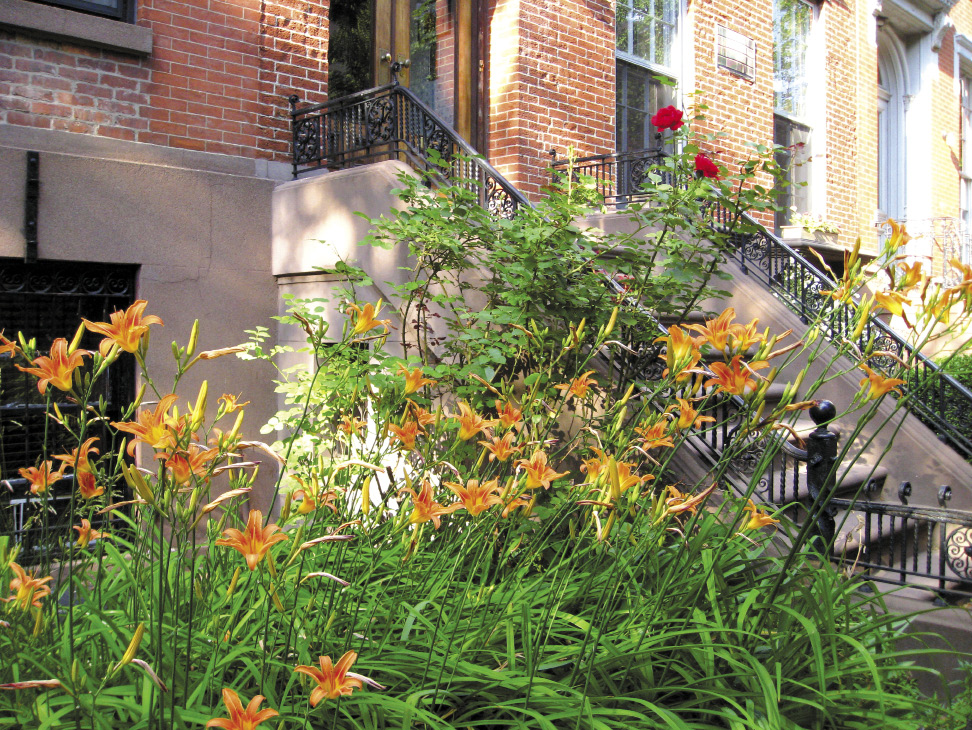 To paraphrase that old adage, why buy sugar snaps when the day lilies are free?
To paraphrase that old adage, why buy sugar snaps when the day lilies are free?
As you may know from my cookbooks roundup in our current issue, I’m obsessed with Ellen Zachos’ new book Backyard Foraging: 65 Familiar Plants You Didn’t Know You Could Eat (Storey, $16.95). This gorgeous guide—written by a Harvard-educated Manhattanite who teaches at the New York Botanical Garden—will change not only the way you eat, but your relationship to the plants all around you. After years stepping over a neighbor’s dogwood’s profuse fruits, the book cued me in to their banana-y flavors; now I’m counting down the hours ’til the late-summer harvest.
My appetite for weeds was whetted by our regular foraging writer Marie Viljoen—thanks to her, I’m snacking my way across city sidewalks right now, and you should be too. If you’re new to foraging, I have two words for you: day lilies. They’re everywhere right now and once you know what they look like, those big orange blossoms are impossible to miss, or resist.
The unopened buds are like flower-kissed green beans and the one-day-only blooms are beautiful atop salads or stuffed with ice cream. But unless you’re out in the country, you might not want to deprive others of the flower show—instead, pluck day-old blossoms, which droop before falling to the ground. Toss into rice or pasta, or dry them to add to classic hot and sour soup. But I love them best eaten out of hand. I pluck them as I pass by and feel like an ape in an ancient African jungle, subway rumblings notwithstanding.
For dessert, look down. Where you see purply stains on the sidewalk, you’re likely under a mulberry tree, and right now the branches bear their annual sweet haul. The berries are best when they’re nearly black. If you have to pull at all, they’re not quite ripe; instead look for the ones that release with ease. Eat your fill, then smile at passersby with juice-stained teeth.



